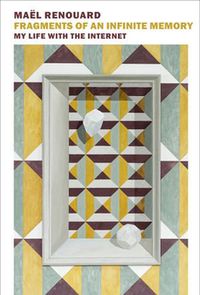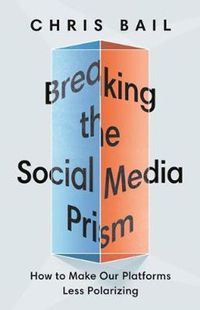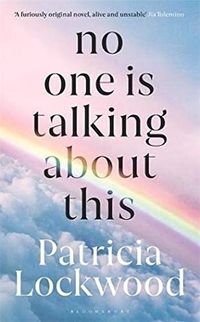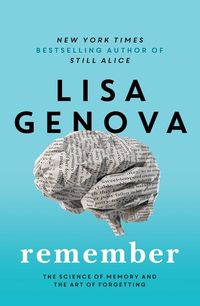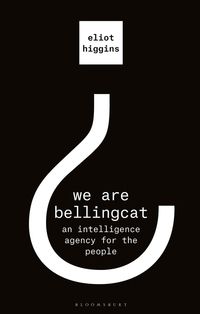Who are we becoming in the age of the internet? The following works explore how our digital experiences and lived experiences continue to overlap and evolve in new and unexpected ways; They seek to better understand the benefits and the consequences of everything from the way we consume to the way we remember.
For a personal investigation of how the internet changes us…
Fragments of an Infinite Memory by Mael Renouard
A deeply informed, yet playful and ironic look at how the internet has changed human experience, memory, and our sense of self.
Fragments of an Infinite Memory is a provocative and elegant inquiry into life in a wireless world. Renouard is old enough to remember life before the Internet but young enough to have fully accommodated his life to the Internet and the gadgets that support it. Here this young philosopher, novelist, and translator tries out a series of conjectures on how human experience, especially the sense of self, is being changed by our continual engagement with a memory that is impersonal and effectively boundless.
For those wanting to see behind the curtain of the algorithm…
Breaking the Social Media Prism by Christopher A. Bail
In an era of increasing social isolation, platforms like Facebook and Twitter are among the most important tools we have to understand each other. We use social media as a mirror to decipher our place in society but, as Chris Bail explains, it functions more like a prism that distorts our identities, empowers status-seeking extremists, and renders moderates all but invisible.
Providing data-driven recommendations for strengthening our social media connections, Breaking the Social Media Prism shows how to combat online polarisation without deleting our accounts.
For exploring the modern condition via a fictional lens…
No One is Talking About This by Patricia Lockwood
A woman known for her viral social media posts travels the world speaking to her adoring fans, her entire existence overwhelmed by the internet - or what she terms ‘the portal’. Are we in hell? the people of the portal ask themselves. Are we all just going to keep doing this until we die?
Suddenly, two texts from her mother pierce the fray: ‘Something has gone wrong,’ and ‘How soon can you get here?’ As real life and its stakes collide with the the portal, the woman confronts a world that seems to contain both an abundance of proof that there is goodness, empathy and justice in the universe, and a deluge of evidence to the contrary.
For those questioning the status quo of constant availability…
World Without Email by Cal Newport
Constant communication has become part of the way we work as we check our emails every 5.4 minutes. But at what expense? Cal Newport argues that this steady flow of distractions disrupts us from achieving any meaningful work, causes us undue stress and is costing businesses millions in the form of untapped potential.
Drawing on a fascinating array of case studies and offering practical solutions, Newport shows us how a world without email will liberate people to do their most profound, fulfilling and creative work - and much more of it too.
For the history and possible future of cyberwarfare…
This is How They Tell Me the World Ends by Nicole Perlroth
Zero day: a software bug that allows a hacker to break in and scamper through the world’s computer networks invisibly until discovered. One of the most coveted tools in a spy’s arsenal, Zero days are the blood diamonds of the security trade. In this market, governments aren’t regulators; they are clients - paying huge sums to hackers willing to turn over gaps in the Internet, and stay silent about them.
Here, an intrepid journalist unravels an opaque, code-driven market from the outside in - encountering spies, hackers, arms dealers, mercenaries and a few unsung heroes along the way.
For those pondering our digital binary of watching and being watched…
Little Eyes by Samantha Schweblin
Not quite a phone, not quite a toy, not quite a robot, Kentukis contain cameras which allow someone on the other side of the planet to access the most intimate moments of another person’s life. And it doesn’t take long for these apparently innocent devices to fall prey to our dark obsession with technology.
Little Eyes is a chilling portrait of our compulsively interconnected society. Schweblin irresistibly pulls the reader into an unsettling, unforgettable world of voyeurism, narcissism, and the sinister reality that lies beneath the most seductive of masks.
If you’re wondering about the impact of infinite recall on our memory…
Memory by Lisa Genova
Neuroscientist Lisa Genova delves into how memories are made and how we retrieve them. You’ll learn whether forgotten memories are temporarily inaccessible or erased forever and why some memories are built to exist for only a few seconds while others can last a lifetime. You’ll come to appreciate the clear distinction between normal forgetting and forgetting due to Alzheimer’s. And you’ll see how memory is profoundly impacted by meaning, emotion, sleep, stress, and context.
Once you understand the language of memory and how it functions, you can both vastly improve your ability to remember and feel less rattled when you inevitably forget.
For those looking to learn how language is evolving in the internet age…
Because Internet by Gretchen McCulloch
A fizzing take on how the internet is transforming language by the resident linguist at Wired.
Have you ever puzzled over how to punctuate a text message? Wondered where memes came from? Fret no more - Because Internet is the perfect book for understanding how the internet is changing the English language, why that’s a good thing, and what our online interactions reveal about who we are.
For a detailed look at liberty and safety in the digital age…
We See All by Jon Fasman
What are citizens of a free country willing to tolerate in the name of public safety?
Jon Fasman examines how these technologies help police do their jobs, and what their use means for our privacy rights and civil liberties, exploring vital questions, such as: Should we expect to be tracked and filmed whenever we leave our homes? Should the state have access to all of the data we generate? Should private companies? What might happen if all of these technologies are combined and put in the hands of a government with scant regard for its citizens’ civil liberties?
To better understand knowing the price versus knowing the value of art…
Against Amazon and Other Essays by Jorge Carrion & Peter Bush
Against Amazon explores the increasing pressures of Amazon and other new technologies on bookshops and libraries.
Collecting the author’s essays on these vital social, cultural, and intellectual spaces, as well as his interviews with the writers who love them - including Alberto Manguel, Iain Sinclair, Luigi Amara and Han Kang, among others - Against Amazon is equal parts a history of books and bookshops, an autobiography of a reader, a travelogue, a love letter - and, most urgently, a manifesto against the corrosive pressures of late capitalism.
To see how future justice may be done differently using collective intelligence…
We Are Bellingcat by Eliot Higgins
After the Russian suspects in the Salisbury poisoning appeared on television, it took just under two weeks for the real identity of one of them to be revealed. This huge investigative coup wasn’t pulled off by an intelligence organisation or a traditional news outlet. Instead it was made by Bellingcat, the open-source investigative unit that is redefining the way we think about news, politics and the digital future.
We Are Bellingcat tells the story of how a school dropout created a whole new category of information-gathering and galvanised citizen journalists to solve some of the biggest stories of our time, using just their computer screens.


